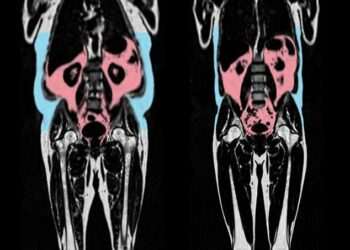Each time you swallow a pill, there’s a very good chance it was made using chemicals derived from crude oil.
Everything from paracetamol and ibuprofen to hay fever tablets and antibiotics such as penicillin rely on the fossil fuel to power the chemical reactions needed to manufacture the right drug formulation.
Even nasal decongestants are made with chemicals produced using crude-oil derivatives. Benzene, for example – a flammable, naturally occurring component of crude oil and coal – is toxic if ingested or inhaled.
But it is vital for the production of dozens of medications (including aspirin), as it kick-starts the synthesis of other chemicals and active pharmaceutical ingredients needed to make them.
‘There are a huge number of petrochemicals used in the production of medicines, because they act as the raw materials, or building blocks, for many drugs,’ says Penny Ward, a visiting professor in pharmaceutical medicine at King’s College London.
But it comes at an environmental cost. A 2019 study at McMaster University in Canada found the pharmaceutical industry emits 55 per cent more carbon dioxide than the entire automotive sector.

A 2019 study at McMaster University in Canada found the pharmaceutical industry emits 55 per cent more carbon dioxide than the entire automotive sector. Crude oil jacks, like these in Texas, extract the oil which is vital for the production of dozens of medications
Now, in an effort to reduce the pharmaceutical industry’s carbon footprint, scientists are working on greener ways to make some of these medicines.
Researchers at Edinburgh University have come up with a way of turning everyday plastic waste from water bottles and food packaging into paracetamol, according to a report in Nature Chemistry.
Most of this is made up of a type of plastic called polyethylene terephthalate (PET), a strong, lightweight material which creates an estimated 350 million tonnes of plastic waste a year worldwide, much of which ends up in landfill or polluting oceans.
The Edinburgh team have been able to turn a molecule called terephthalic acid – derived from PET – into paracetamol by adding a genetically modified form of E.coli bacteria.
E.coli is best known as a common trigger of food poisoning and severe stomach upsets.
A particular type – E.coli 0157 – resulted in two deaths, and more than 100 people in England were admitted to hospital after contaminated salad leaves caused a food poisoning outbreak in 2024.
Some studies even link it with an increased risk of bowel cancer and dementia. But when E.coli is added to terephthalic acid, the Edinburgh team discovered, it does something remarkable – it turns it into acetaminophen, the active ingredient in paracetamol.

Scientists are working on greener ways to make medicines in an effort to reduce the pharmaceutical industry’s carbon footprint (picture posed by model)

Dr Heba Ghazal, a senior lecturer in pharmacy at Kingston University in Surrey
This follows research by Bath University, where scientists found a way to bypass using fossil fuels in the production of paracetamol and ibuprofen – using a compound found in pine trees. Called beta-pinene, it is a colourless, oily liquid with a pine-like scent that’s widely used in perfumes and air fresheners.
The Bath team showed that the pine tree oil could be used to make the painkilling drugs as effectively as petrochemicals, reported the journal Chemistry-Sustainability-Energy-Materials in 2023.
And tests showed it could also be used to make the chemicals needed to produce beta-blockers (blood pressure-lowering tablets) and the asthma inhaler drug salbutamol.
While still at an experimental stage, what makes it an appealing prospect is that beta-pinene is already in abundant supply as a waste product of the global paper industry, making it plentiful and cheap.
‘This is a very interesting development,’ says Dr Heba Ghazal, a senior lecturer in pharmacy at Kingston University in Surrey.
‘Oil from pine trees is abundant and mainly going to waste at the moment. It could be used instead of fossil fuels as a building block for some drugs.’
Experts at the University of Wisconsin-Madison in the US are working on a similar idea, using poplar trees to help produce paracetamol. Poplar trees – which are fast-growing – are seen all over the UK.
The US team found that they release a compound called p-hydroxybenzoate, a plant version of the benzene currently used in vast quantities to make drugs.
But Professor Ward says efforts to make drug production greener will make a small impact, as ‘it’s virtually impossible to remove petrochemicals from the drug production chain and, if you did, it’s very likely that a lot of medicines would disappear – they’re used virtually across the board.
‘Although the pharmaceutical industry has done a lot to become more carbon neutral in terms of green energy sources, when it comes to the raw building blocks of chemicals used to make drugs it’s still very reliant on petrochemicals. It’s a much tougher nut to crack.’









